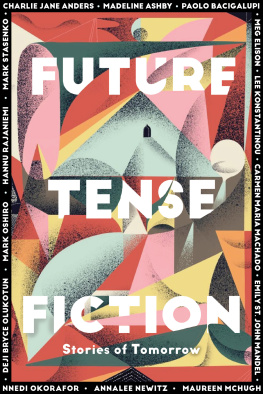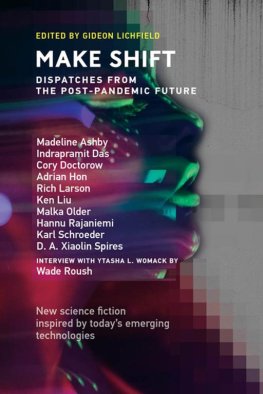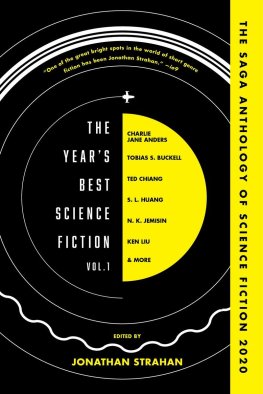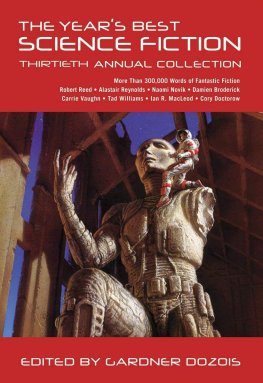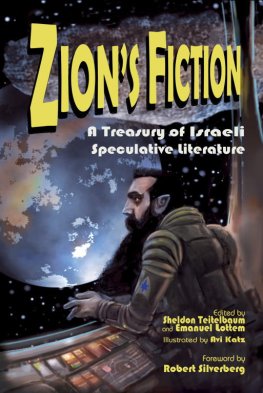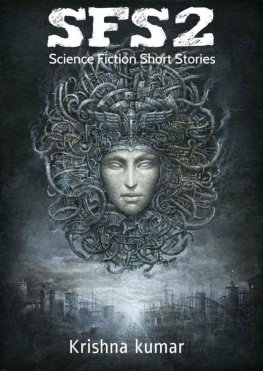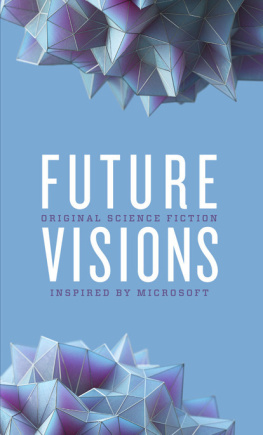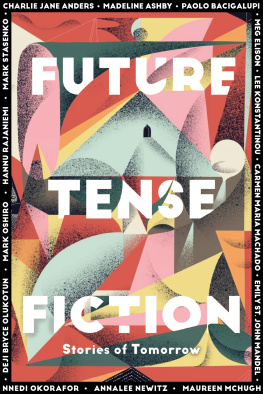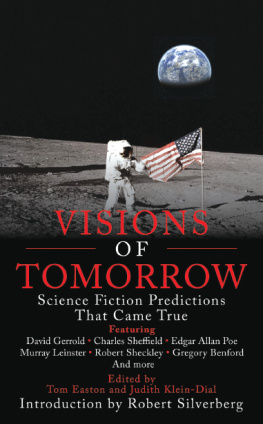
FUTURE TENSE FICTION
Stories of Tomorrow
CHARLIE JANE ANDERS MADELINE ASHBY
PAOLO BACIGALUPI MEG ELISON LEE KONSTANTINOU
CARMEN MARIA MACHADO EMILY ST. JOHN MANDEL
MAUREEN MCHUGH ANNALEE NEWITZ
NNEDI OKORAFOR DEJI BRYCE OLUKOTUN
MARK OSHIRO HANNU RAJANIEMI MARK STASENKO
EDITED BY:
KIRSTEN BERG, TORIE BOSCH, JOEY ESCHRICH, ED FINN, ANDRS MARTINEZ, AND JULIET ULMAN

The Unnamed Press
Los Angeles, CA
AN UNNAMED PRESS BOOK
Copyright 2019 by Future Tense
All rights reserved, including the right to reproduce this book or portions thereof in any form whatsoever. Permissions inquiries may be directed to info@unnamedpress.com.
Published in North America by the Unnamed Press.
www.unnamedpress.com
Unnamed Press, and the colophon, are registered trademarks of Unnamed Media LLC.
This book was published in collaboration with Future Tense, a partnership of Slate, New America, and Arizona State University.
The copyrights for individual short stories and essays are owned by their respective authors.
Library of Congress Control Number: 2019945882
ISBN: 978-1-944700-95-9
eISBN: 978-1-944700-92-8
Cover Art by Tyler Keeton Robbins
Design and Typeset by Jaya Nicely
Distributed by Publishers Group West
Manufactured in the United States of America
First Edition
1 3 5 7 9 10 8 6 4 2
Note
Future Tense is a partnership of Slate, New America, and Arizona State University that explores emerging technologies, public policy, and society. Beginning in 2016, Future Tense commissioned a series of stories from leading writers that imagined what life might be like in a variety of possible futures. Future Tense Fiction: Stories of Tomorrow is a selection of those pieces.
Table of Contents
Future Tense Editors
Nnedi Okorafor
Mark Oshiro
Annalee Newitz
Deji Bryce Olukotun
Madeline Ashby
Emily St. John Mandel
Carmen Maria Machado
Mark Stasenko
Meg Elison
Hannu Rajaniemi
Lee Konstantinou
Paolo Bacigalupi
Maureen McHugh
Charlie Jane Anders
FUTURE TENSE FICTION
Introduction:
The Future is Made of Choices
We seem inevitably drawn to two opposites when we tell stories about the future: will we finally reach a rationalist techno-utopia, or will we sow the seeds of our own destruction by innovating too aggressively? These extremes tempt us because they provide finality, and hence they scratch our itch for neatly packaged narratives where all the loose ends are carefully tied up. But they dont reflect how we encounter technologies in our everyday lives, or the history of actual technological change, which is always heterogeneous, ambivalent, growing out of and elaborating on our existing social structures and norms, cultures and values, and physical environments. There are no fresh beginnings or clean endings in real life. We dont get to terra-form our planet and start over; the forces of evil probably wont wear highly visible insignia and matching uniforms. Instead, technologies as profound as personal computers, solar panels, and pacemakers and as mundane as toasters and headphones insinuate themselves gradually into our markets, our relationships, and even our sense of who we are.
Living with technology is profoundly weird. One year you have to drive to the next state or post a letter to talk to your sister or father, and the next youre able to summon them up instantly with the ring of a telephone. A few decades later, youre texting them the palm tree or mermaid emoji from the back seat of your rideshare as shorthand for good morning or thinking of you. A few months after that, you find out that your own government might be monitoring these exchanges. Technologies deform existing social arrangements, not invalidating or erasing them but twisting them into unexpected shapesand thereby provoking new feelings, allowing new thrills, eliciting new anxieties, opening up new vulnerabilities, creating new opportunities for self-expression, commerce, connection, and conflict. We get used to these changes quite quickly, and once we do, they become unremarkable, even invisible. A good science fiction story can help re-sensitize us by showing us people dangling over different technological precipices, or realizing their potential in once-unimaginable ways.
Its the pursuit of this strangeness, this destabilizing feeling of cohabitating on our planet with multitudes of technologies seen and unseen, that inspires us at Future Tense Fiction. The project grew out of Future Tense, a collaboration among Slate, Arizona State University, and New America. Since 2010, we have been publishing nonfiction commentary and hosting events about emerging technologies and their transformative effects on public policy, culture, and society. We started experimenting with publishing fiction on Slates Future Tense channel in 2016, with Paolo Bacigalupis disturbing, incisive robots-and-IP-law detective thriller Mika Model, and then in early 2017, with Emily St. John Mandels wistful, uncanny time-travel yarn Mr. Thursday. In 2018, cheered by the enthusiastic reactions of our readers and keen to work with some of our favorite authors, we started publishing one story per month, accompanied by a response essay by someone with expertise in a related area (from theoretical physics to food systems) and original illustrations.
We view Future Tense Fiction as an urgent corollary to our nonfiction efforts. Fiction has the ability to transport us into a panoply of possible visions of the future, and to grasp at the weirdness of our pervasive interactions with science and technology through the eyes of people with identities and experiences entirely unlike our own. Stories evoke our empathy, allowing us to tunnel into someones psychology, emotions, and worldviewand to viscerally experience the consequences, both desired and dreaded, expected and unforeseen, of living in a technological world in perpetual flux.
The future isnt a fixed path, or a chute through which were helplessly propelled. We make the future together through an agglomeration of choices small and large, minute and momentous: whether and how to vote, which technologies to buy and adopt and which ones to skip entirely, how and where we live, how we get around, how we construct our families, where we work and what we work on. Were all constrained to various degrees by a dizzying array of social factors, but we do have decisions to make. And doing nothing in the face of scientific and technological change is a decision too. We hope that Future Tense Fiction stories help us imaginatively rehearse possible future scenarios, and help us get better at recognizing places where things could be different, even when theyre hard to glimpse. Scientific and technological elites and leaders often present the future as a fait accompli. A good story can help us find a different point of view, to scout out the decision points so that we can muster our resources and act at the right moment.
This volume collects a full year of Future Tense Fiction, exploring quarterly themes like home, memory, sport, and work. It can be both tricky and rewarding, with such a range of topics, and such a stylistically diverse set of contributing authors, to tease out commonalities running through our first year of Future Tense Fiction. Instead of doing so ourselves here, we invite you to proceed on your own journey of discovery, to help us think constructively about our shared future.
Next page
